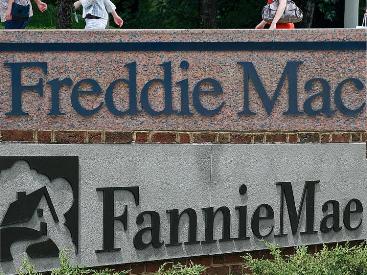Does Fannie Mae and Freddie Mac have a future?
By Lily Leung
University of Southern California professor Richard Green was among four expert panelists who testified Tuesday before the Senate Banking Committee on the future of government enterprises Fannie Mae and Freddie Mac, which federal officials eventually hope to change and likely phase-out.
Tuesday’s discourse among lawmakers and housing academics delved into whether a government guarantee should exist and was among an ongoing series of federal meetings centered on the mortgage industry. (See the agenda here.)
Green, also the director of USC’s Lusk Center for Real Estate, said the panelists, who included professors and policy experts, were split on whether a government guarantee should exist, with Green on the side saying they should stick around. Panelists appeared to generally agree on the need to reduce the size of the mortgage giants and avoid another housing bubble, Green said.
Here are Green’s main points, as outlined in his testimony to Senate Banking Committee members:
–Freddie Mac and Fannie Mae should continue operating but “not as they currently exist,” he told the Union-Tribune on Tuesday by phone. In other words, he says they should be reformed.
–We must acknowledge that government guarantees exist and not only in the mortgage industry. “Goldman Sachs will get bailed out if they need to get bailed out,” he said.
–Vulnerable communities, such as rural and central urban areas, would suffer from an absence of government backstops. Why? “Collateral is important when underwriting the loan,” Green said. “If you live in a suburb, there tends to be a lot of turnover of houses, so sales are more frequent and homogeneous, and easier to make a judgment in value.” That’s not the case in rural and central urban areas, so it can be harder to judge home values and in turn, assess home-loan risk, so lending will be harder to obtain.
(Read this full testimony here.)
The other panelists included: Adam J. Levitin, a law professor at Georgetown University Law Center; Dr. Dwight Jaffe, bank, finance and real estate professor at the University of California Berkeley; and Peter Wallison, a fellow in financial policy studies at think-tank American Enterprise Institute.
Green so far has appeared before a handful of Senate and House committee hearings on housing issues.
On the issue reforming Freddie and Fannie: “This is really a hard problem to solve. I was very impressed today with the questions today…I don’t see us moving to get rid of (Fannie and Freddie) tomorrow, but there’s an enormous concern about how do we get from here to there.”
Article derived from: www.SignOnSanDiego.com
John is the Vice President here at JohnHart, and as such is responsible for managing and directing the firm towards obtaining its ultimate goals.
He is also one of our main contributors on the Blog. (please see his profile page on the main site for more information.)



1 comments